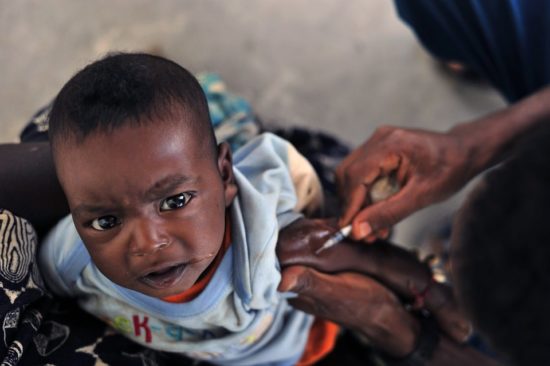Childhood vaccines and antibiotic use in low- and middle-income countries
Vaccines may reduce the burden of antimicrobial resistance, in part by preventing infections for which treatment often includes the use of antibiotics. However, the effects of vaccination on antibiotic consumption remain poorly understood—especially in low- and middle-income countries (LMICs), where the burden of antimicrobial resistance is greatest5. Here we show that vaccines that have recently been implemented in the World Health Organization’s Expanded Programme on Immunization reduce antibiotic consumption substantially among children under five years of age in LMICs. By analysing data from large-scale studies of households, we estimate that pneumococcal conjugate vaccines and live attenuated rotavirus vaccines confer 19.7% (95% confidence interval, 3.4–43.4%) and 11.4% (4.0–18.6%) protection against antibiotic-treated episodes of acute respiratory infection and diarrhoea, respectively, in age groups that experience the greatest disease burden attributable to the vaccine-targeted pathogens.
AMR NEWS
Your Biweekly Source for Global AMR Insights!
Stay informed with the essential newsletter that brings together all the latest One Health news on antimicrobial resistance. Delivered straight to your inbox every two weeks, AMR NEWS provides a curated selection of international insights, key publications, and the latest updates in the fight against AMR.
Don’t miss out on staying ahead in the global AMR movement—subscribe now!







